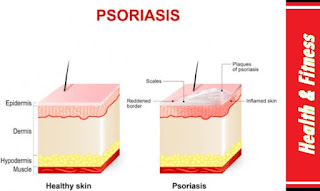Characteristics and uses of acitretin
Acitretin works by inhibiting cell growth and keratinization of the skin. Let's find out about the use and contraindications of this retinoid family drug. |
| Acitretin- Uses- Side Effects |
Today, let's look at the properties and uses of acitretin. Acitretin is a drug belonging to the group of retinoids or derivatives of vitamin A, which helps treat skin thickening and scaly problems.
The drug works by inhibiting the overgrowth of cells and keratinization of the skin. Keratinization refers to the process by which skin cells thicken due to protein deposition.
What is acitretin?
Characteristics, signs, and uses of acitretinAcitretin is used to treat a wide range of severe skin problems. The psoriasis problem is one of these skin problems. In addition, acitretin is also helpful in the treatment of scaly sclerosis, a skin disease in which keratin deposits on cells and hardens.
However, the drug should only be used under medical supervision, preferably under the prescription of a dermatologist. These experts are more experienced with tissue retinoid treatment.
How to take acitretin?
 |
| psoriasis-diagnosis-treatment |
The typical starting dose for adults and the elderly is 25 mg or 30 mg once a day. However, after 2 to 4 weeks, the doctor can change the dose depending on the effect.
In any case, the maximum dose is 75mg per day and treatment lasts up to 3 months. However, if the expert deems it more necessary, it can last longer.
Also, if you forget to take your medication, you shouldn't try to replenish that daily dose. However, if you take it as soon as possible and forget it and the next dose is too short, you shouldn't take it again. Likewise, if you want to stop treatment, you should talk to your doctor, so don't decide for yourself.
Side Effect
Most side effects appear at the beginning of treatment and disappear when the dose is modified or stopped.
Dry skin, mucous membranes, and lips are some of the most common side effects. In addition, the following unwanted effects may be present.
- Changes in hair growth rate and texture
- Inflammation of the gums and oral mucosa
- Skin blisters and cracks
- Changes in hair and skin color
- Vision problems such as dry eyes, poor vision, poor night vision, and contact lens hypersensitivity.
In other cases, the skin may peel off in addition to drying the mucous membranes of the skin and nose. This flaking can occur especially on the palms and soles of the feet.
On the other hand, a very small percentage of patients may have side effects such as nosebleeds. They also have scaly skin and healthy skin thinning with increased sensitivity.
Finally, after long-term treatment with acitretin, bone-related changes such as thinning of bones or decreased bone density may also occur.
When you cannot take acitretin
You should not take acitretin in the following situations :- If you are pregnant, during treatment, or are likely to become pregnant within the next 3 years
- Liver, kidney or coronary insufficiency
- Allergic to acitretin or retinol derivatives
- Treatment with Tetracycline
It should be borne in mind that acitretin can greatly increase the likelihood of malformation. In other words, if pregnant women receive this medication, they can cause fetal malformations. Typical acitretin malformations are:
- Central nervous system damage
- Heart problems and vasodilation
- Deformation of the skull, face, and skeleton
- Thymus problems
Even if a pregnant woman takes a short period of time, the probability of malformation increases. Malformations can even occur if you become pregnant within three years of the end of treatment.

ConversionConversion EmoticonEmoticon